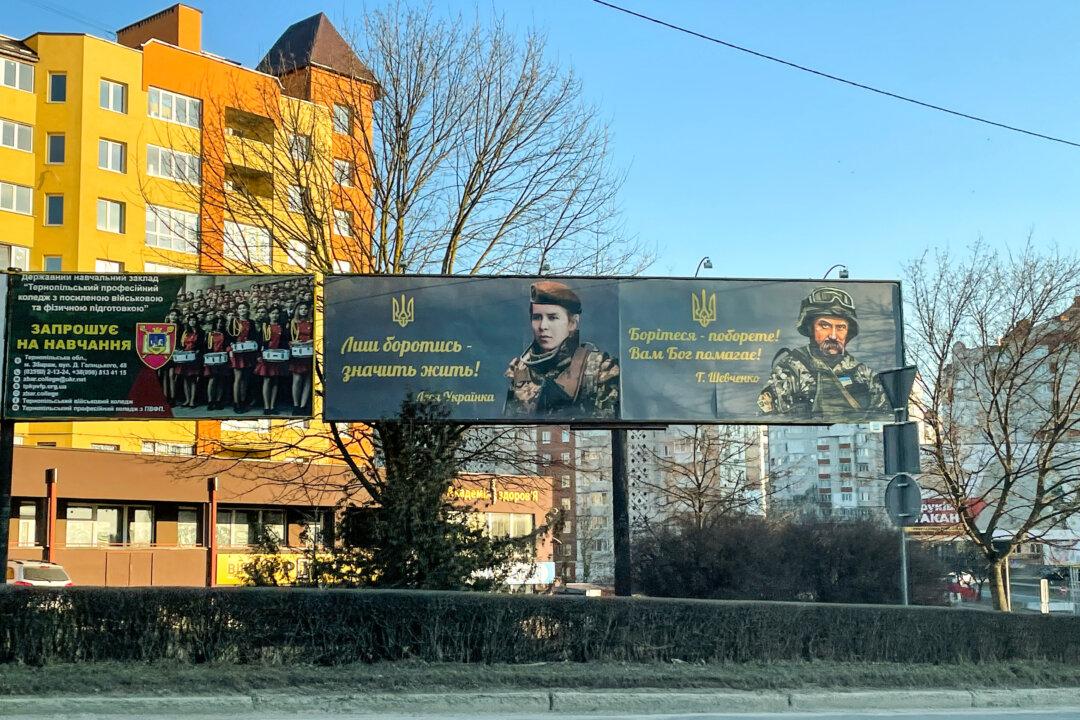LVIV, Ukraine—A poster on a busy intersection in Lviv, the unofficial capital of Western Ukraine, depicts a decapitated two-headed eagle from Russia’s coat of arms holding the axes the creature had apparently used to perform the bloody act.
“Small military operation in Ukraine!' the poster reads, riffing on the phrase Russian President Vladimir Putin has used to describe Russia’s invasion.





